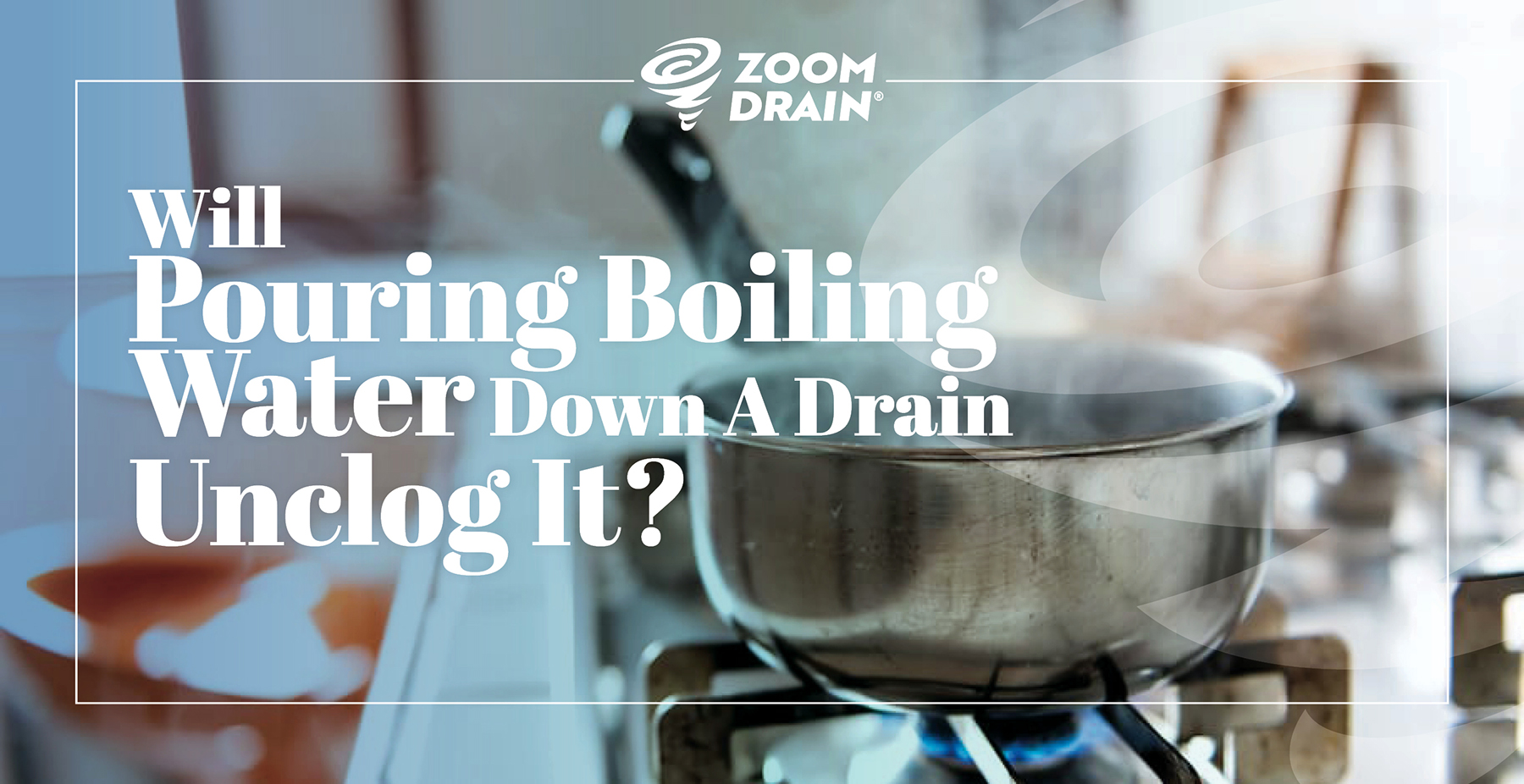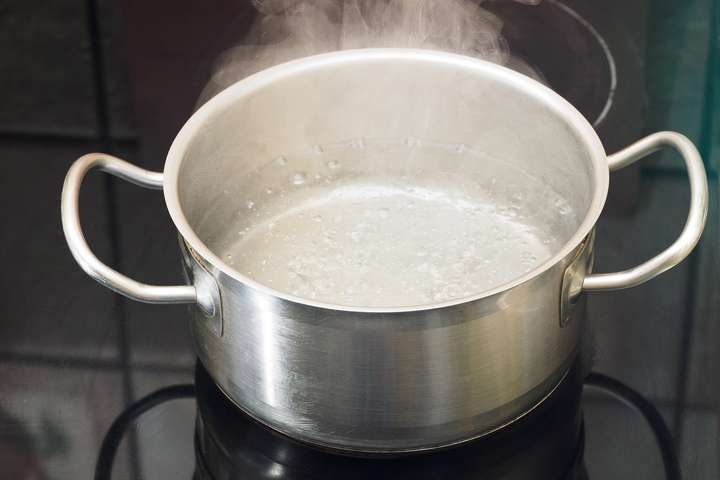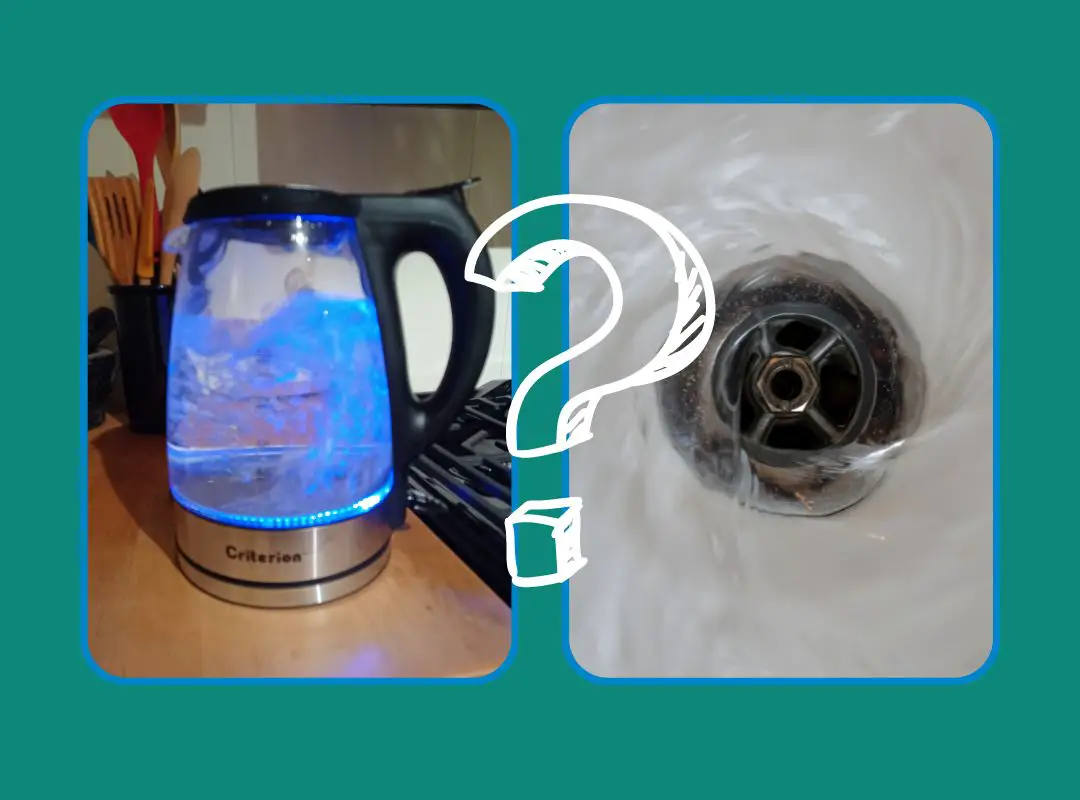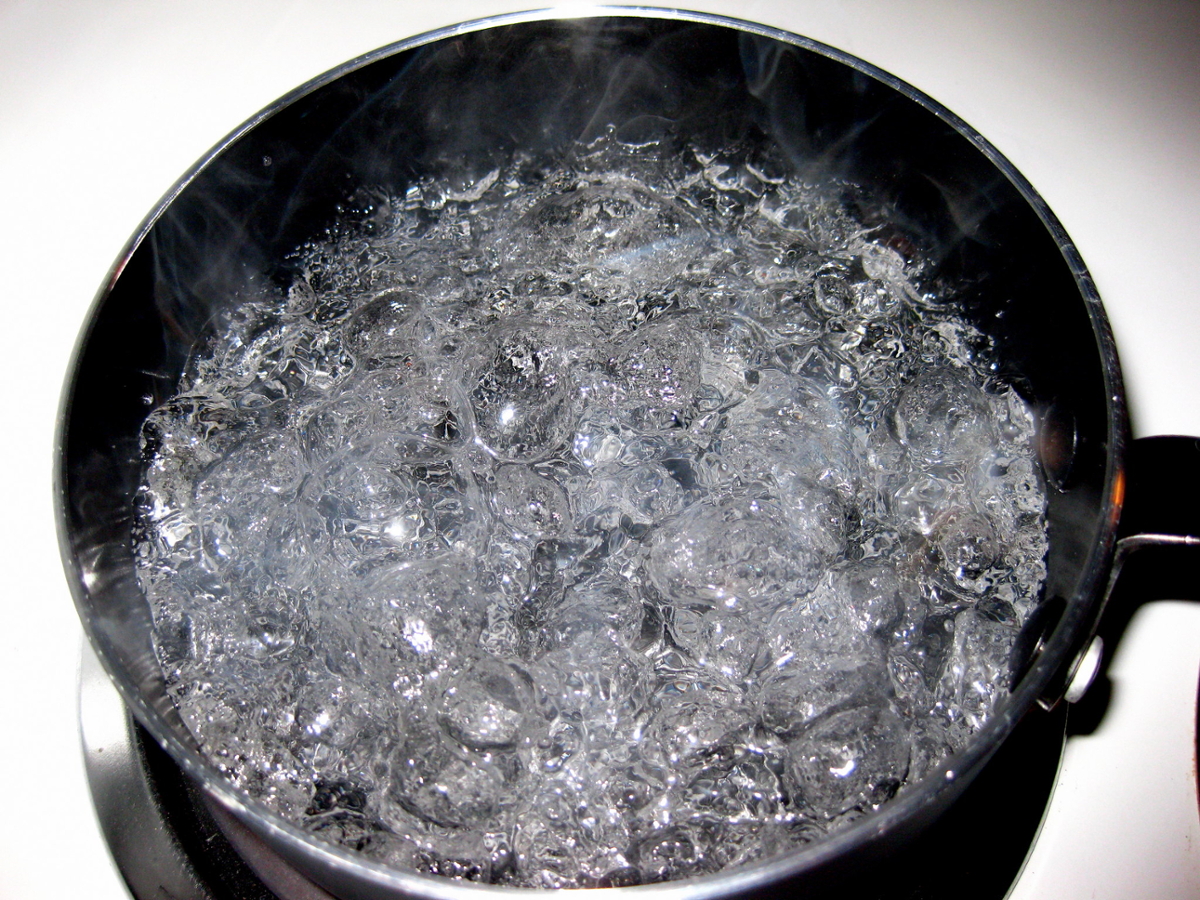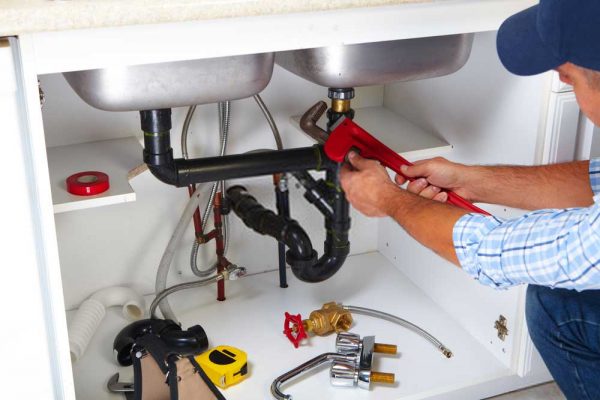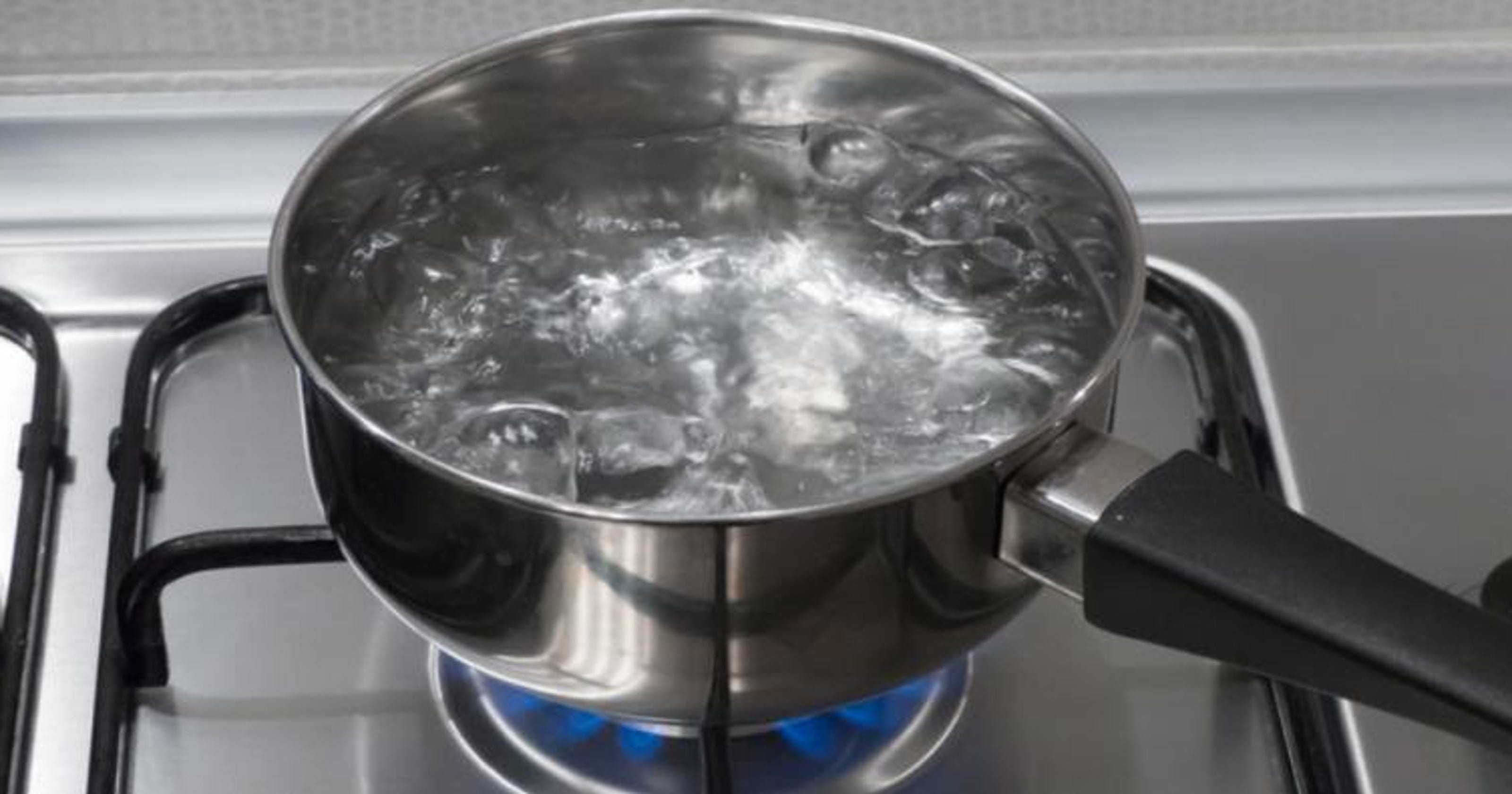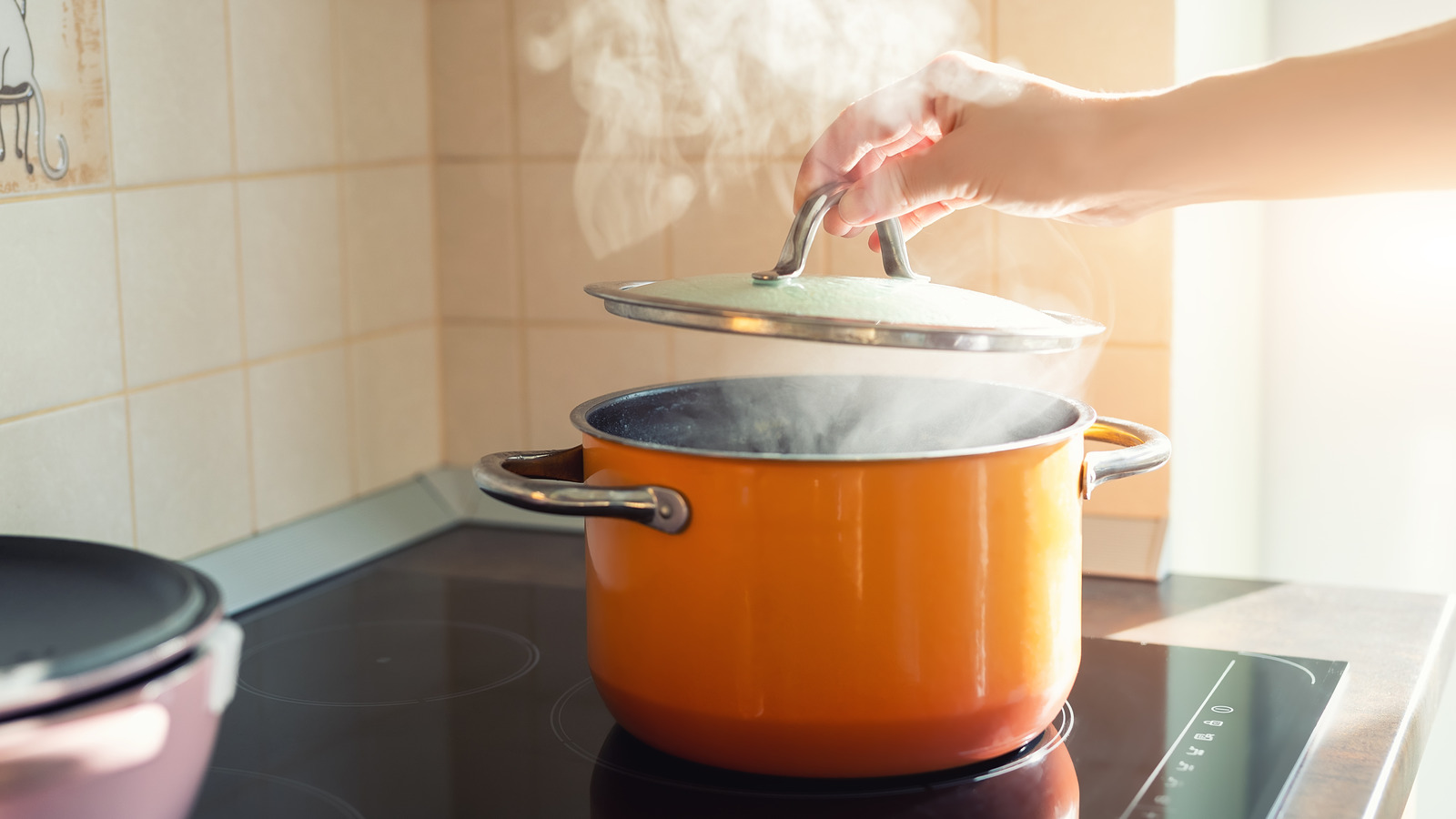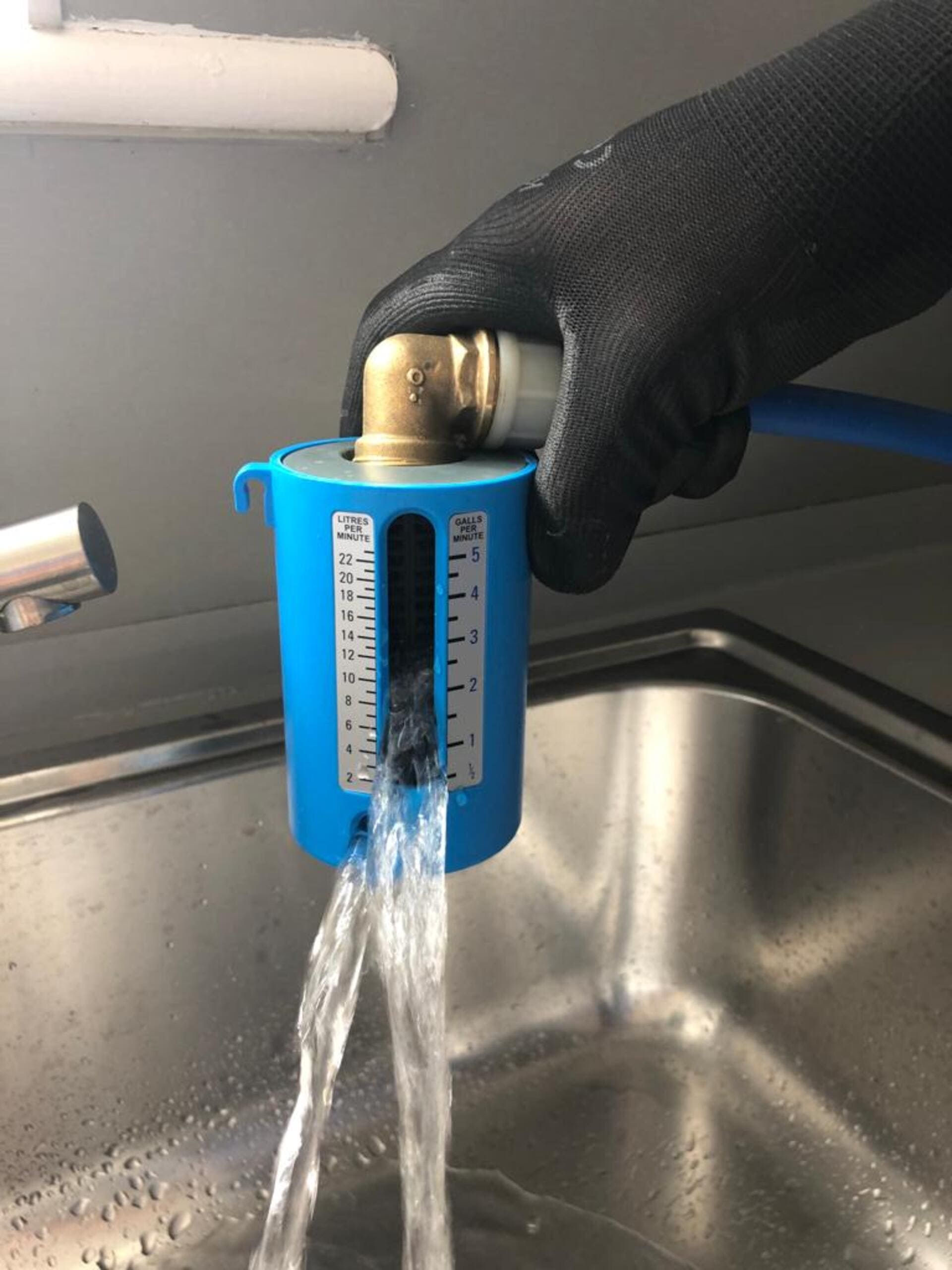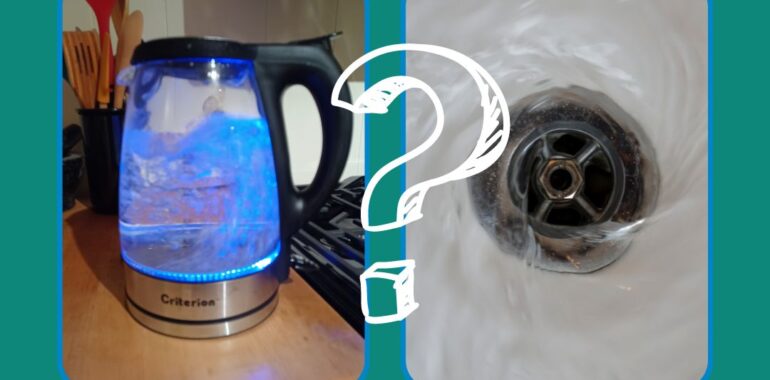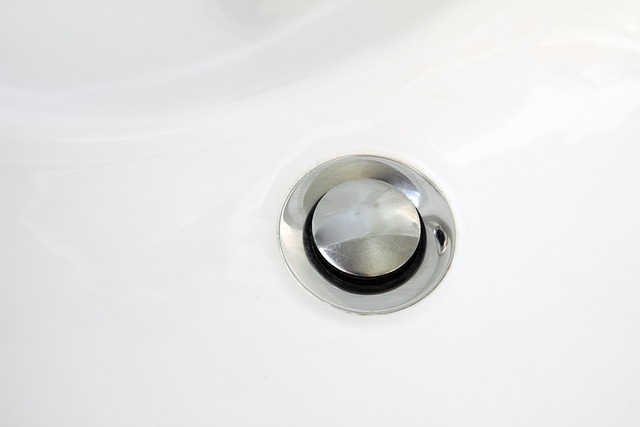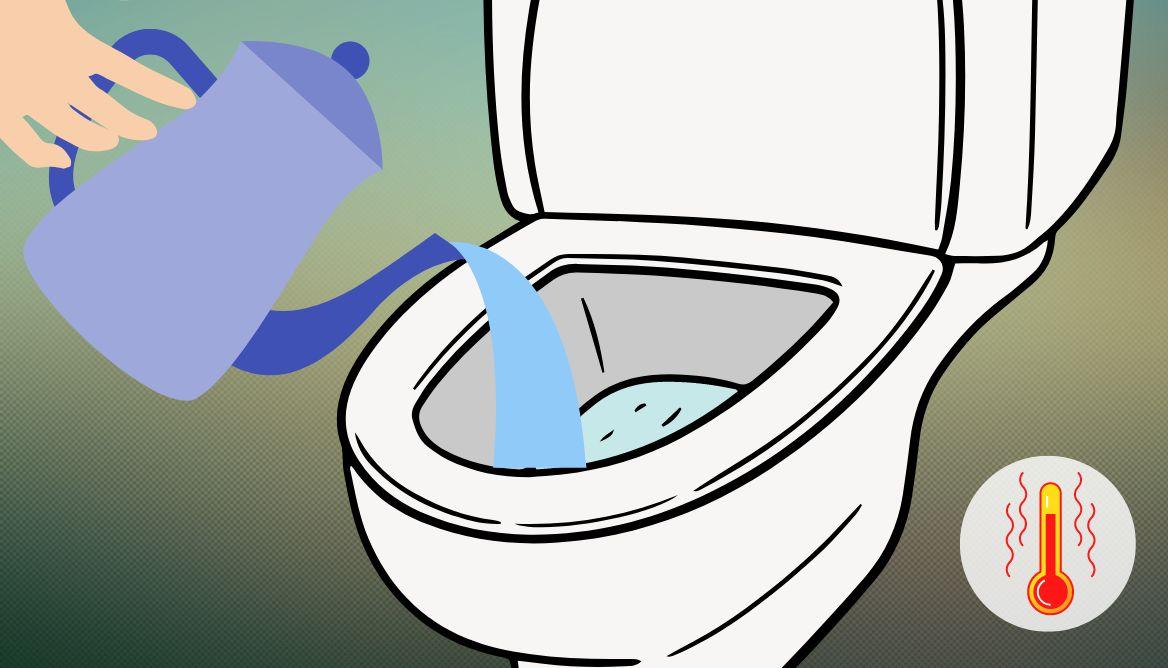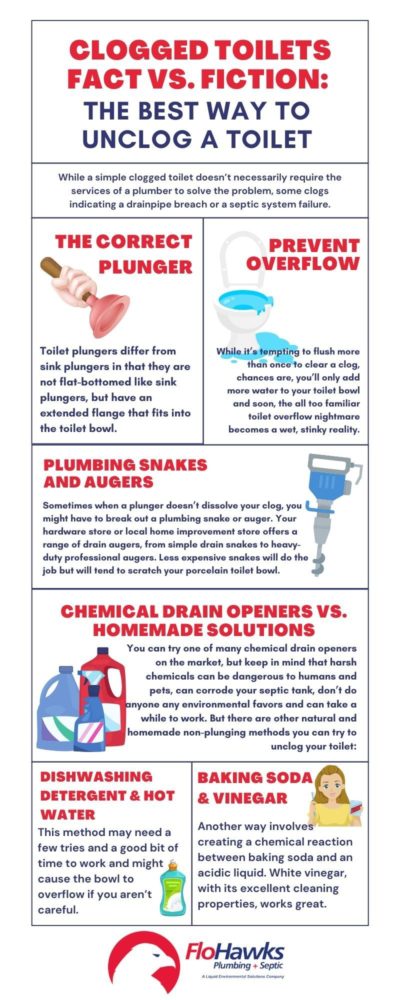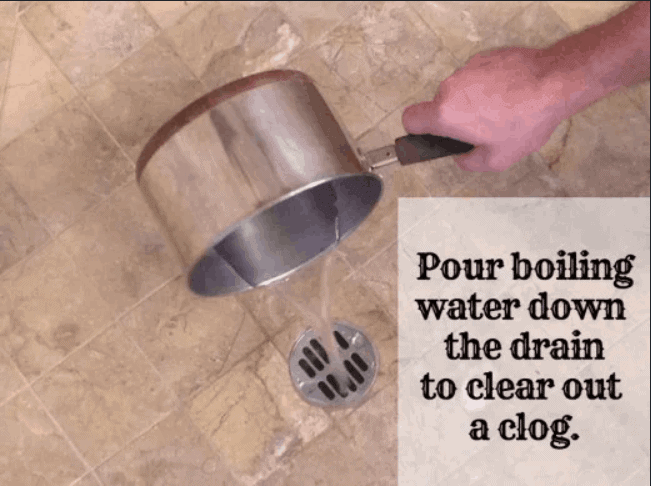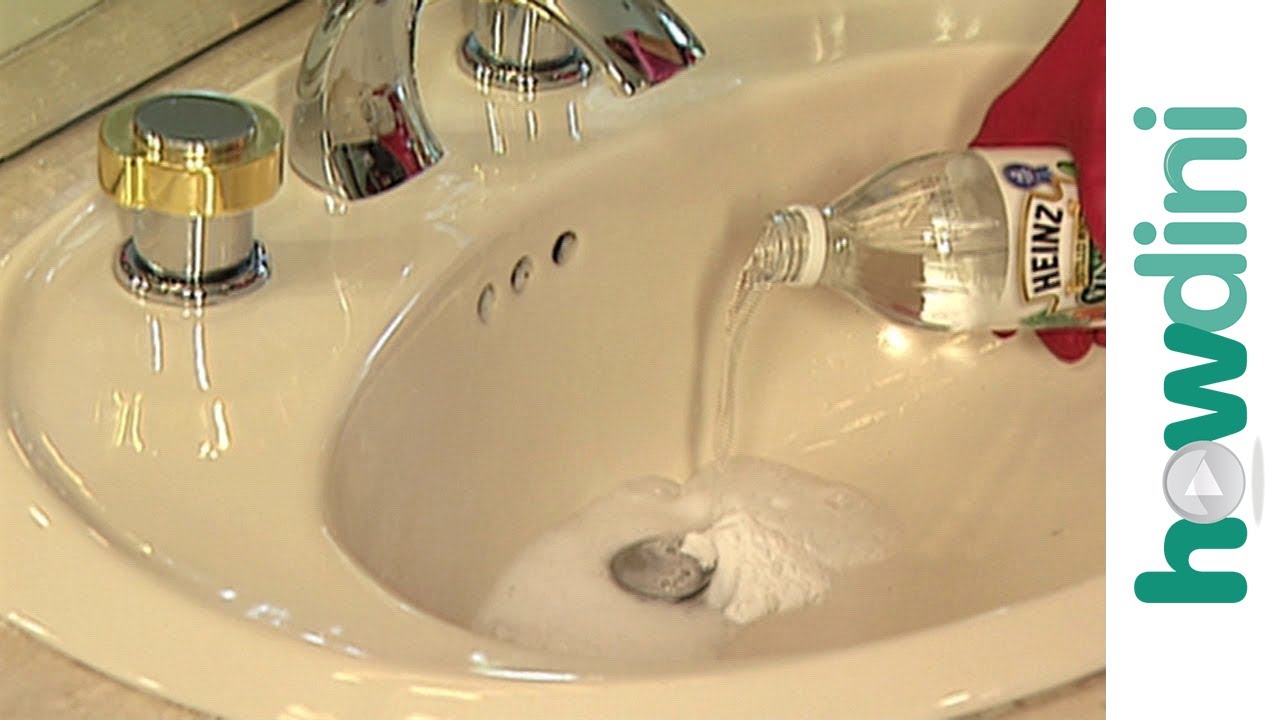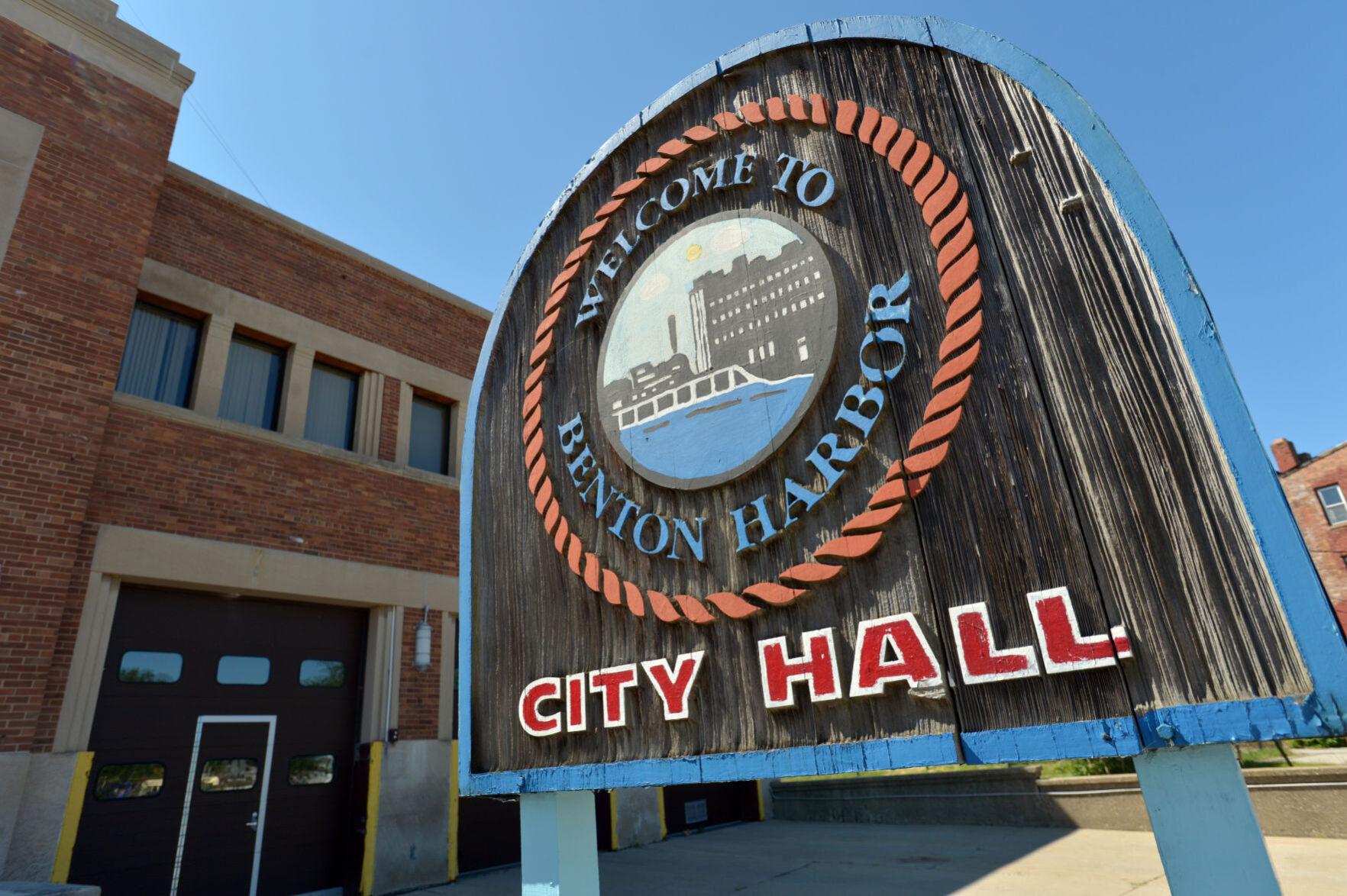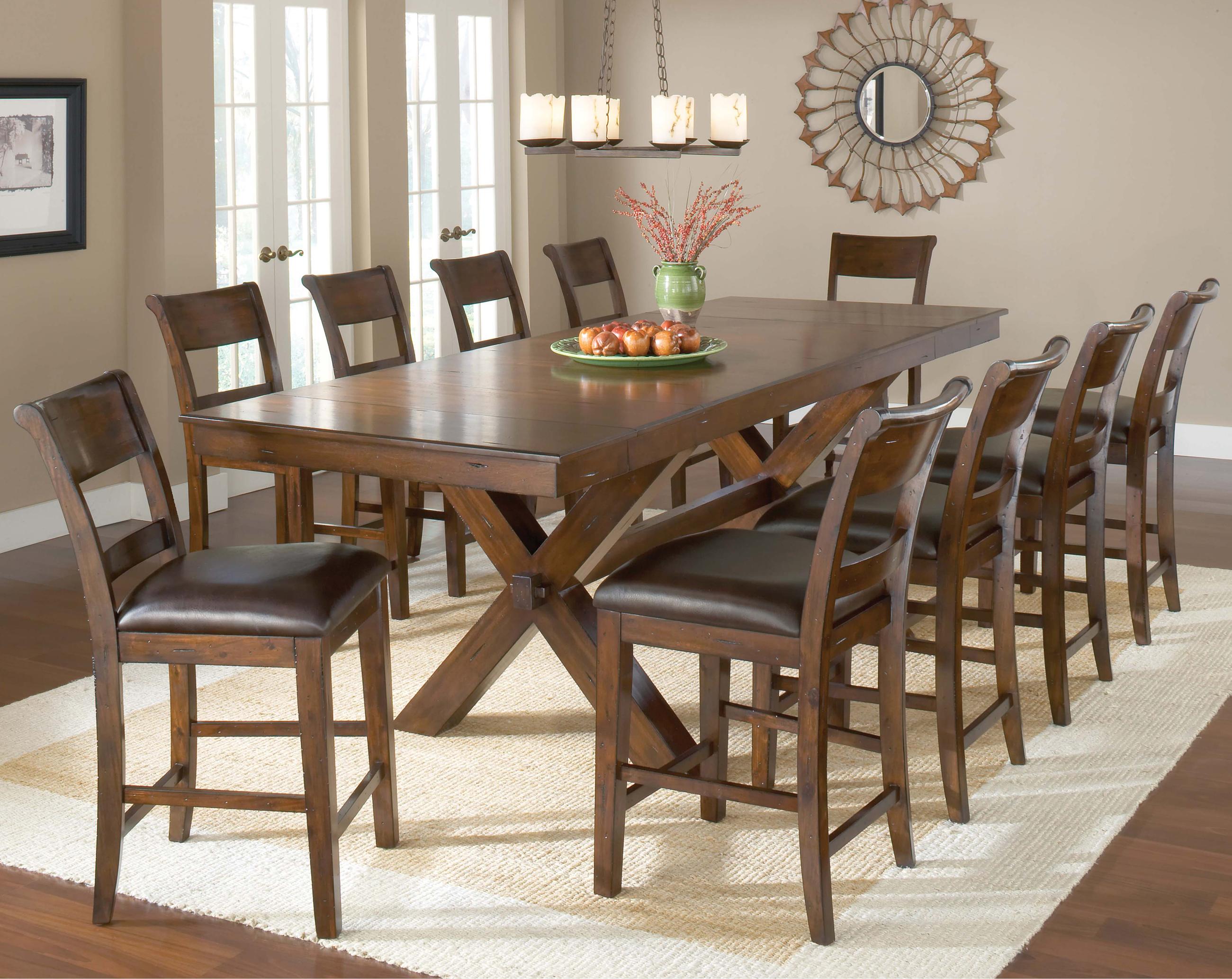Dealing with a clogged kitchen sink can be a frustrating and messy experience. Luckily, one of the most effective and natural ways to unclog your sink is by using boiling water. This method is not only easy and cost-effective, but it also doesn't require any harsh chemicals that can damage your pipes. Here's how you can use boiling water to unclog your kitchen sink: Step 1: Boil a pot of water Start by filling a large pot with water and bringing it to a rolling boil on your stovetop. The amount of water you'll need will depend on the size of your sink, but aim for at least half a gallon. Step 2: Remove any standing water from the sink Before pouring the boiling water, make sure there is no standing water in your sink. Use a cup or a small bucket to remove any excess water. Step 3: Slowly pour the water down the drain Once you've removed the standing water, carefully pour the boiling water down the drain in a slow, steady stream. Be careful not to splash yourself with the hot water. Step 4: Wait for a few minutes Let the boiling water sit in the drain for a few minutes. The hot water will help dissolve any grease, soap scum, or food particles that may be causing the clog. Step 5: Test the drain After a few minutes, run the tap to see if the water is draining properly. If the water is still not draining, you may need to repeat the process or try a different method.1. How to Unclog a Kitchen Sink with Boiling Water
Using boiling water to unclog your kitchen sink offers several benefits: Natural and chemical-free Unlike commercial drain cleaners, boiling water is a natural and chemical-free way to unclog your sink. This means it's safer for your pipes and the environment. Cost-effective Boiling water is a budget-friendly solution for unclogging your sink. You likely already have a pot and water at home, so there's no need to spend money on expensive drain cleaners. Effective for minor clogs If your sink is only partially clogged, boiling water can be an effective solution. It can help dissolve and flush away small blockages without the need for harsh chemicals or tools. Easy to use Using boiling water to unclog your sink is a simple and straightforward process that anyone can do. It doesn't require any special skills or equipment.2. The Benefits of Pouring Boiling Water Down Your Kitchen Sink
Boiling water is a popular and effective solution for unclogging kitchen sinks for several reasons: Heat and pressure The heat and pressure from the boiling water can help break down and melt away any grease, soap scum, or food particles that are causing the clog. Flushes out debris The force of the boiling water can also help flush out any debris that may be stuck in your pipes. This can prevent future clogs from occurring. Doesn't damage pipes Unlike commercial drain cleaners, boiling water is gentle on your pipes and won't cause any damage or corrosion. Easy and accessible Boiling water is easy and accessible, making it a convenient solution for unclogging your sink. You don't need any special tools or products, and you can do it at any time.3. Why Boiling Water is an Effective Solution for Clogged Kitchen Sinks
While boiling water is generally a safe and effective method for unclogging kitchen sinks, there are a few potential dangers to be aware of: Possible damage to pipes While boiling water itself won't cause damage to your pipes, it can cause damage if your pipes are already weakened or damaged. If you have old or corroded pipes, it's best to avoid using boiling water. Risk of burns Boiling water is extremely hot and can cause serious burns if it comes into contact with your skin. Be sure to use caution and protective gear, such as oven mitts, when handling boiling water. Splashback When pouring boiling water down your sink, there is a risk of splashback that can result in burns or damage to surrounding surfaces. Use a funnel or pour slowly and carefully to minimize this risk.4. The Dangers of Pouring Boiling Water Down Your Kitchen Sink
To safely pour boiling water down your kitchen sink, follow these tips: Use a heat-resistant container When boiling water, use a heat-resistant pot or kettle to avoid any accidental cracking or breaking. Protect your hands and arms Use oven mitts or thick gloves to protect your hands and arms from the hot water and steam. Pour slowly and carefully To avoid splashback, pour the water slowly and carefully down the drain. You can also use a funnel to direct the water into the drain. Don't use on plastic or PVC pipes If you have plastic or PVC pipes, avoid using boiling water as it can cause them to soften or warp.5. How to Safely Pour Boiling Water Down Your Kitchen Sink
Boiling water is an effective solution for unclogging kitchen sinks because of the science behind it. The heat from the boiling water can help liquefy and break down any grease, soap scum, or food particles that are causing the clog. Additionally, the force of the water can help flush out the debris, allowing the water to flow freely again.6. The Science Behind Using Boiling Water to Unclog Kitchen Sinks
If you're looking for natural alternatives to boiling water for unclogging your kitchen sink, here are a few options: Baking soda and vinegar A mixture of baking soda and vinegar can help break down and dissolve clogs. Simply pour half a cup of baking soda followed by half a cup of vinegar down the drain, let it sit for a few minutes, then pour boiling water down the drain to flush it out. Salt and baking soda A mixture of salt and baking soda can also help unclog your sink. Mix half a cup of each and pour it down the drain, followed by boiling water. Let it sit for a few minutes, then run the tap to see if the clog has cleared. Plunger For tougher clogs, you can use a plunger to help dislodge the blockage. Simply place the plunger over the drain, creating a seal, and push and pull to create suction that can help loosen and remove the clog.7. Natural Alternatives to Boiling Water for Unclogging Kitchen Sinks
Pouring boiling water down your kitchen sink can be a preventive measure to avoid future clogs. You can do this once a week or every few weeks to help keep your drains clear and flowing smoothly. However, if you have a persistent clog, it's best to address the underlying issue rather than relying on frequent boiling water treatments.8. How Often Should You Pour Boiling Water Down Your Kitchen Sink?
To ensure a safe and effective experience when using boiling water to unclog your kitchen sink, here are some dos and don'ts to keep in mind: Do: - Use a heat-resistant container to boil the water - Protect your hands and arms with gloves or oven mitts - Pour the water slowly and carefully to avoid splashback - Use boiling water as a preventive measure rather than as a solution for persistent clogs Don't: - Use boiling water if you have old or damaged pipes - Use boiling water on plastic or PVC pipes - Pour boiling water without removing any standing water first - Use boiling water if you're not confident in handling it safely9. The Dos and Don'ts of Using Boiling Water to Unclog Kitchen Sinks
If boiling water doesn't unclog your kitchen sink, there may be a more stubborn blockage that requires a different approach. Here are a few troubleshooting tips: Use a plunger If you haven't already, try using a plunger to dislodge the clog. Make sure to create a seal around the drain and use forceful pushes and pulls to create suction. Try a natural alternative If boiling water didn't work, you can try using a mixture of baking soda and vinegar or salt and baking soda to see if that helps clear the clog. Call a plumber If all else fails, it's best to call a professional plumber who can use specialized tools and techniques to remove the clog and get your sink back to normal. In conclusion, boiling water can be an effective, natural, and cost-efficient solution for unclogging your kitchen sink. However, it's important to use caution and follow the dos and don'ts to avoid any potential dangers or damage. With these tips and tricks, you can have a clear and functioning kitchen sink in no time.10. Troubleshooting: What to Do if Boiling Water Doesn't Unclog Your Kitchen Sink
Why Boiling Water Down the Kitchen Sink Can Be Harmful to Your Plumbing System
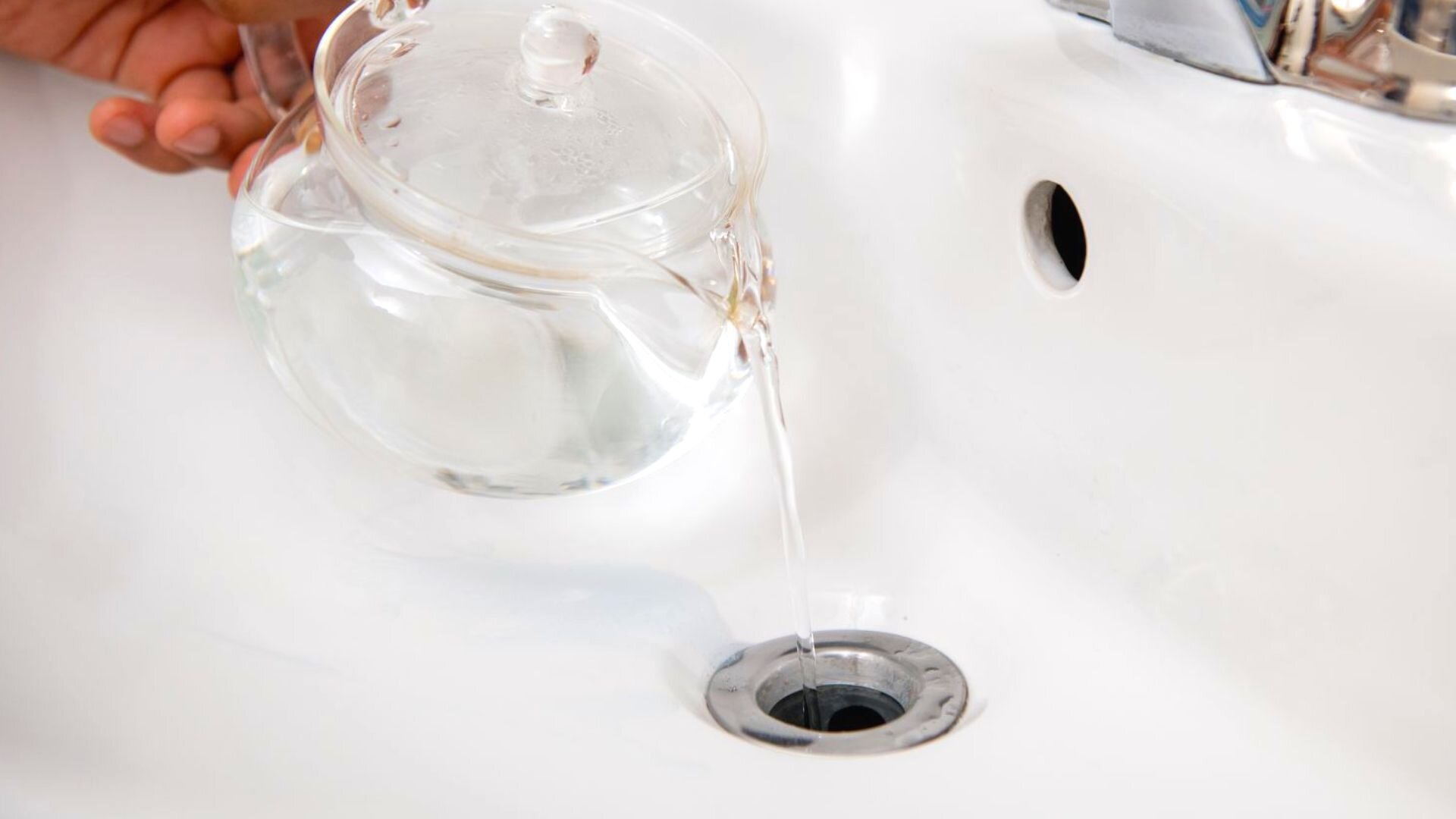
Introduction
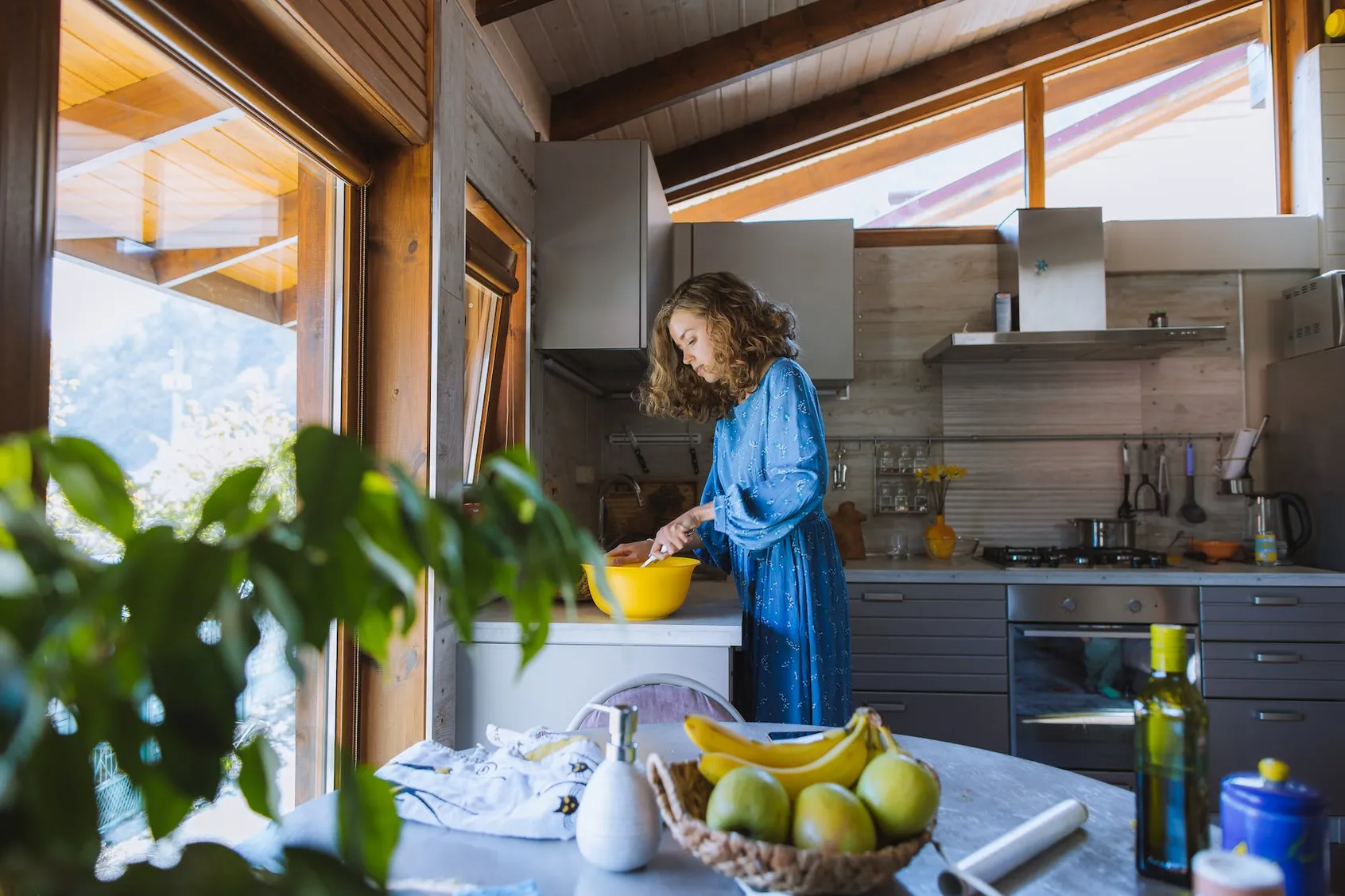 When it comes to house design, the kitchen is often considered the heart of the home. It's where we gather to cook, eat, and spend time with our loved ones. As such, it's important to keep this space functioning properly, and that includes taking care of your plumbing system. While it may seem like a convenient option, pouring boiling water down the kitchen sink can actually have damaging effects on your pipes and can lead to costly repairs. In this article, we'll discuss why this seemingly harmless act can be harmful and what you can do to prevent it.
When it comes to house design, the kitchen is often considered the heart of the home. It's where we gather to cook, eat, and spend time with our loved ones. As such, it's important to keep this space functioning properly, and that includes taking care of your plumbing system. While it may seem like a convenient option, pouring boiling water down the kitchen sink can actually have damaging effects on your pipes and can lead to costly repairs. In this article, we'll discuss why this seemingly harmless act can be harmful and what you can do to prevent it.
The Problem with Boiling Water
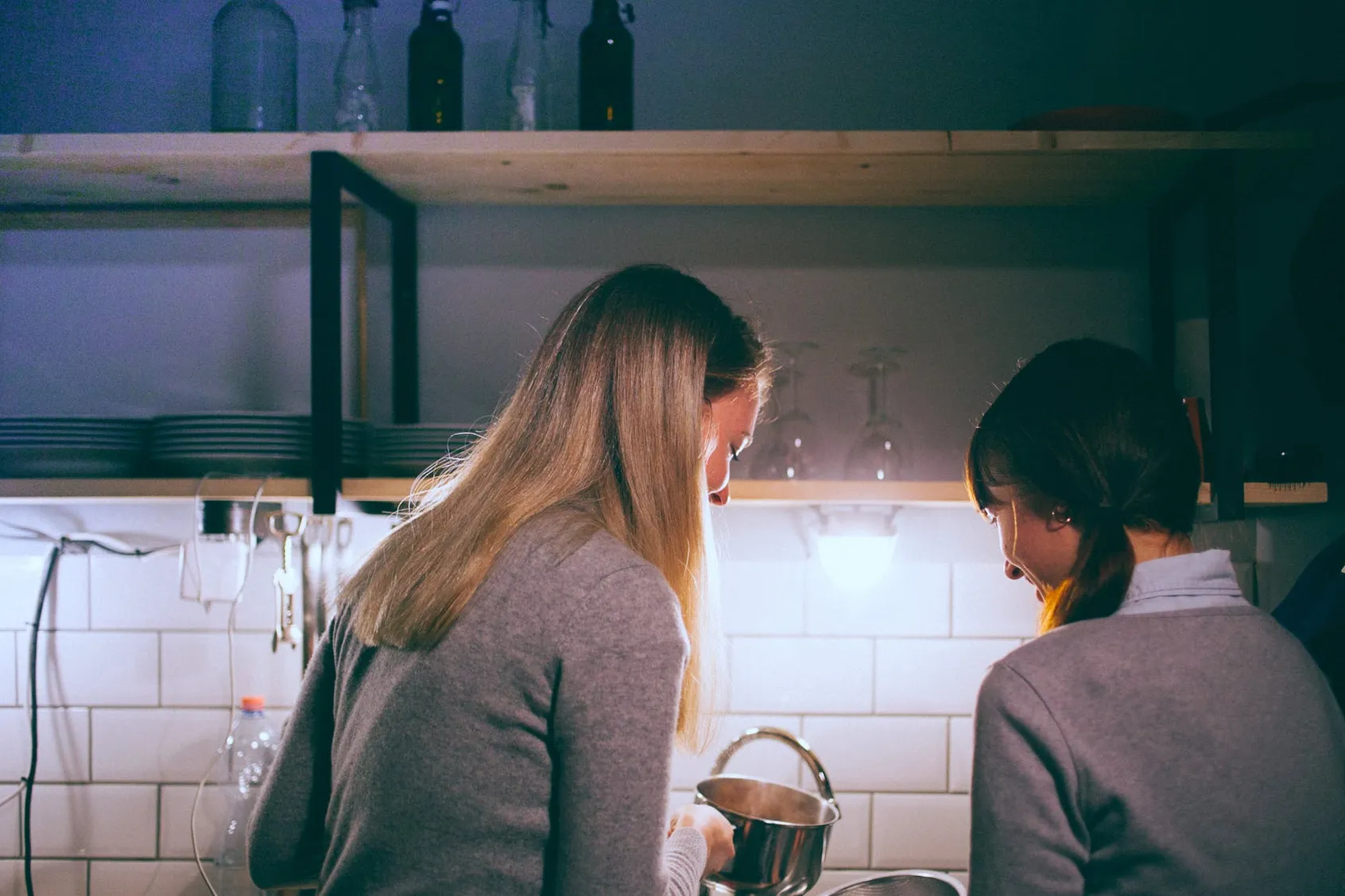 Many people are under the impression that boiling water can help unclog a kitchen sink. While it may temporarily clear out some debris, it can also cause serious damage to your pipes. The high temperatures of boiling water can soften and even melt the materials used in your pipes, such as PVC and rubber seals. This can lead to cracks, leaks, and even burst pipes. Moreover, if there is any existing damage or buildup in your pipes, pouring boiling water down the drain can worsen the problem and cause blockages.
Featured keyword: Boiling water
Many people are under the impression that boiling water can help unclog a kitchen sink. While it may temporarily clear out some debris, it can also cause serious damage to your pipes. The high temperatures of boiling water can soften and even melt the materials used in your pipes, such as PVC and rubber seals. This can lead to cracks, leaks, and even burst pipes. Moreover, if there is any existing damage or buildup in your pipes, pouring boiling water down the drain can worsen the problem and cause blockages.
Featured keyword: Boiling water
The Risks of Pouring Boiling Water Down Your Sink
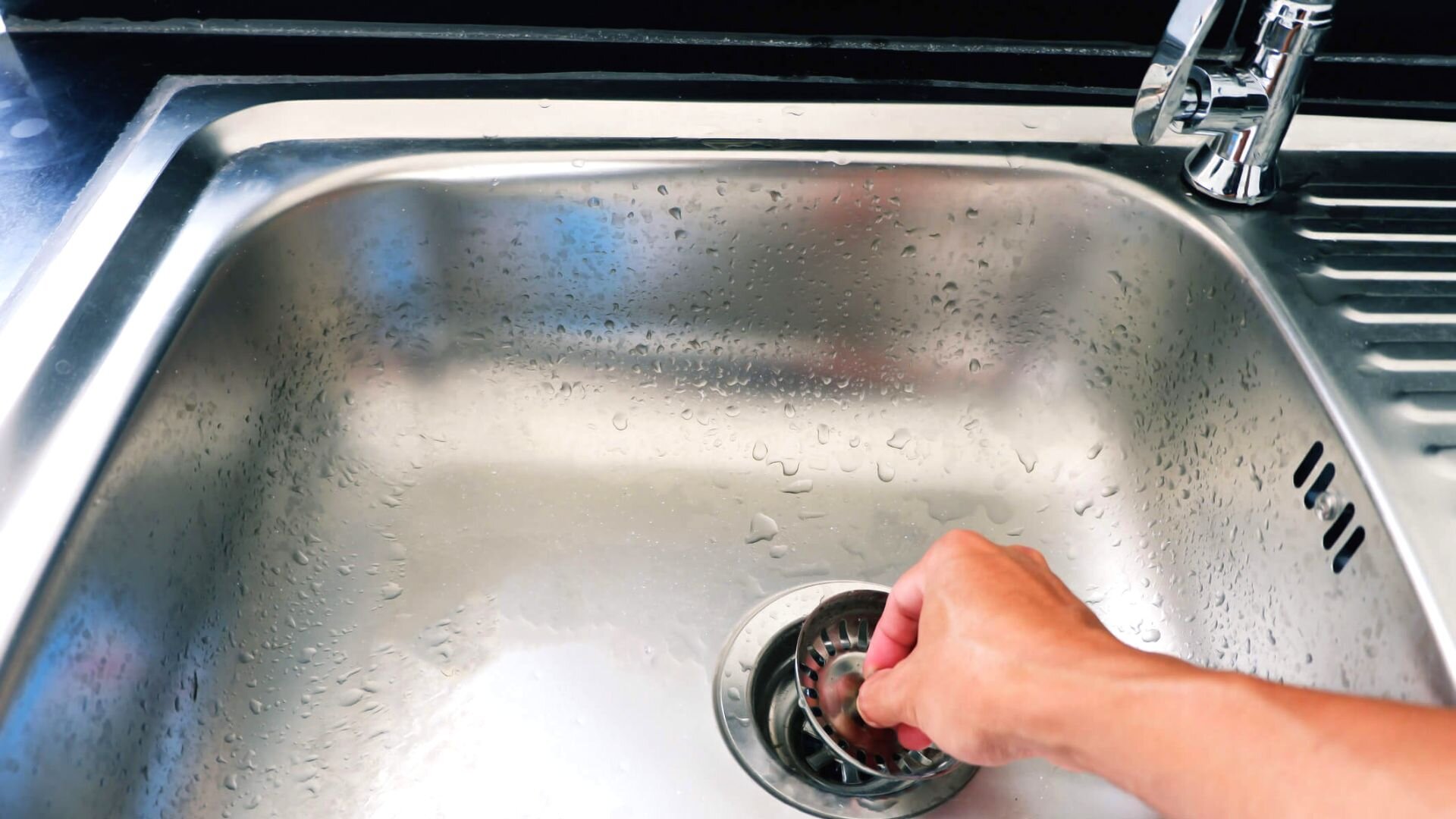 Aside from damaging your pipes, there are other risks associated with pouring boiling water down your sink. The hot water can create pressure and steam, which can cause your pipes to burst or burst out of their fittings. This can be dangerous and can result in burns, especially if you're standing near the sink. Additionally, if you have a garbage disposal, the boiling water can cause the blades to expand and warp, rendering it useless.
Featured keyword: Kitchen sink
Aside from damaging your pipes, there are other risks associated with pouring boiling water down your sink. The hot water can create pressure and steam, which can cause your pipes to burst or burst out of their fittings. This can be dangerous and can result in burns, especially if you're standing near the sink. Additionally, if you have a garbage disposal, the boiling water can cause the blades to expand and warp, rendering it useless.
Featured keyword: Kitchen sink
Preventing Damage to Your Plumbing System
 Now that you understand the potential risks of pouring boiling water down your kitchen sink, it's important to know what you can do to prevent it. First, avoid pouring any type of hot liquid down your sink, including oil or grease. These substances can solidify and clog your pipes. Instead, dispose of them in a separate container and throw them away in the trash. You can also use a sink strainer to catch any food scraps or debris before they go down the drain. Finally, if you do have a clogged sink, it's best to use a plunger or a drain snake to clear the blockage.
Featured keyword: Plumbing system
Now that you understand the potential risks of pouring boiling water down your kitchen sink, it's important to know what you can do to prevent it. First, avoid pouring any type of hot liquid down your sink, including oil or grease. These substances can solidify and clog your pipes. Instead, dispose of them in a separate container and throw them away in the trash. You can also use a sink strainer to catch any food scraps or debris before they go down the drain. Finally, if you do have a clogged sink, it's best to use a plunger or a drain snake to clear the blockage.
Featured keyword: Plumbing system
Conclusion
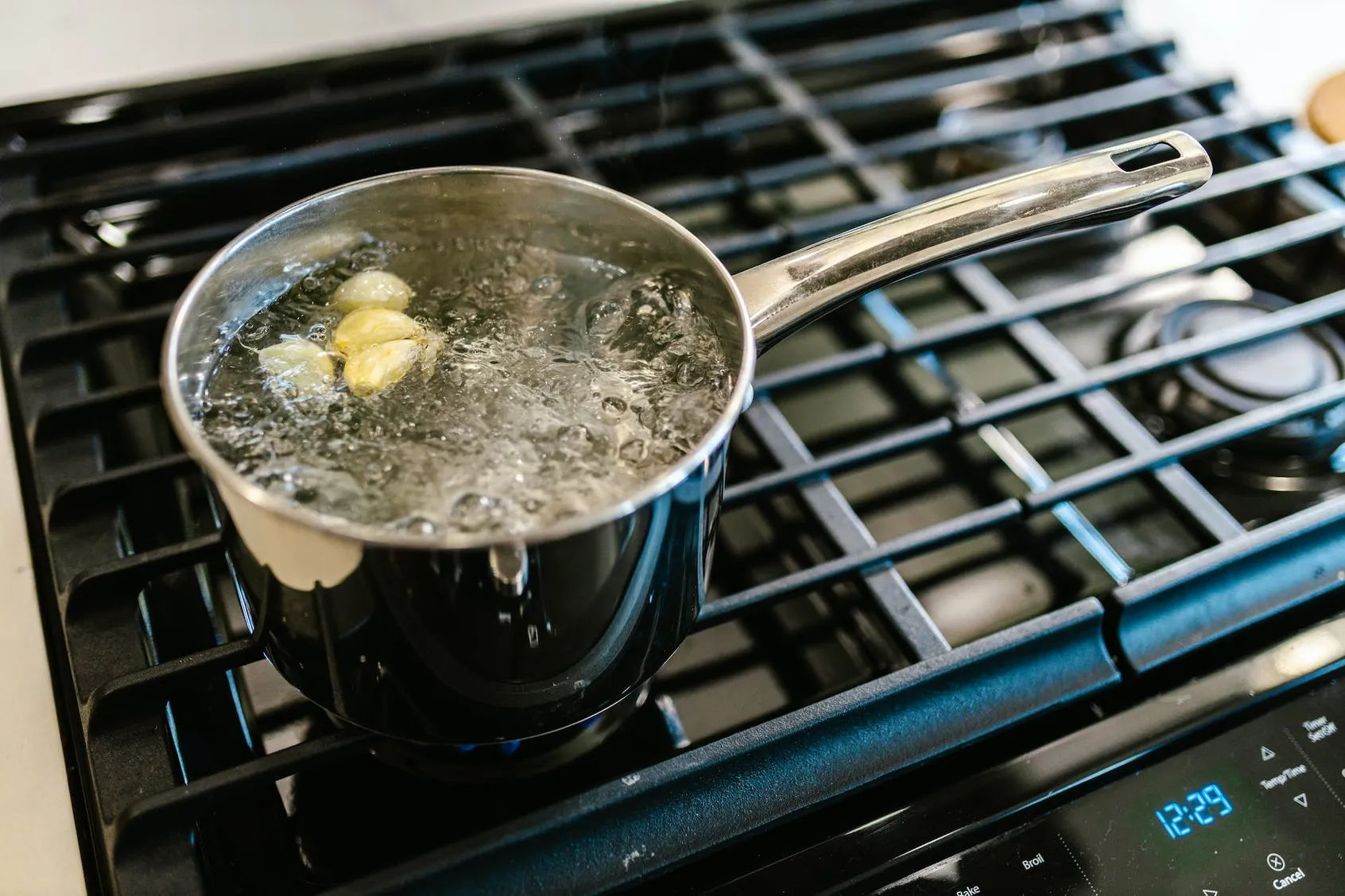 In conclusion, while it may seem like a quick fix, pouring boiling water down your kitchen sink can actually cause more harm than good. It's important to take proper care of your plumbing system to avoid costly repairs and potential hazards. Remember to avoid using hot water and dispose of any oil or grease properly. By following these simple steps, you can keep your kitchen sink and plumbing system in good working condition for years to come.
Featured keyword: House design
In conclusion, while it may seem like a quick fix, pouring boiling water down your kitchen sink can actually cause more harm than good. It's important to take proper care of your plumbing system to avoid costly repairs and potential hazards. Remember to avoid using hot water and dispose of any oil or grease properly. By following these simple steps, you can keep your kitchen sink and plumbing system in good working condition for years to come.
Featured keyword: House design

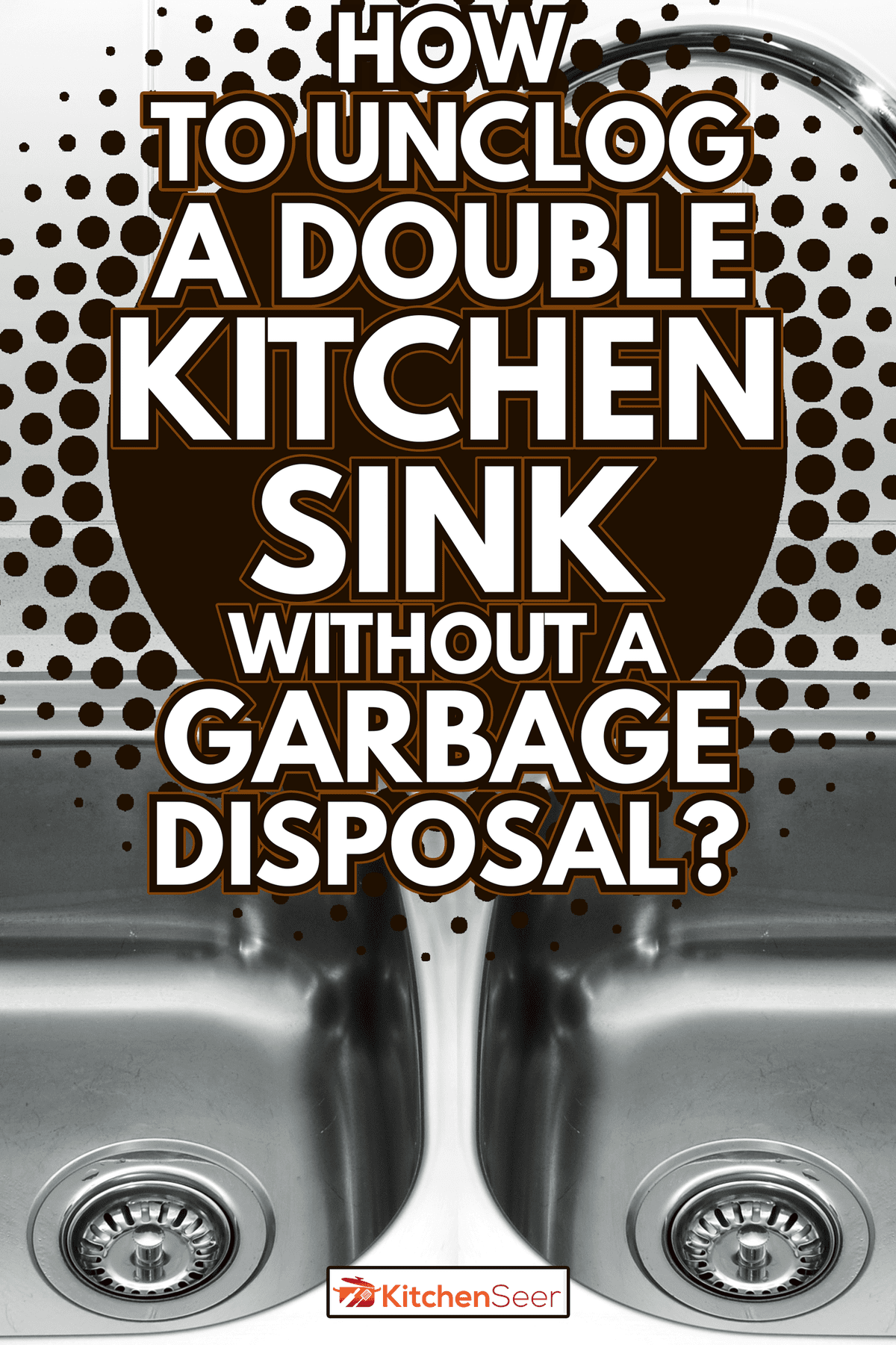





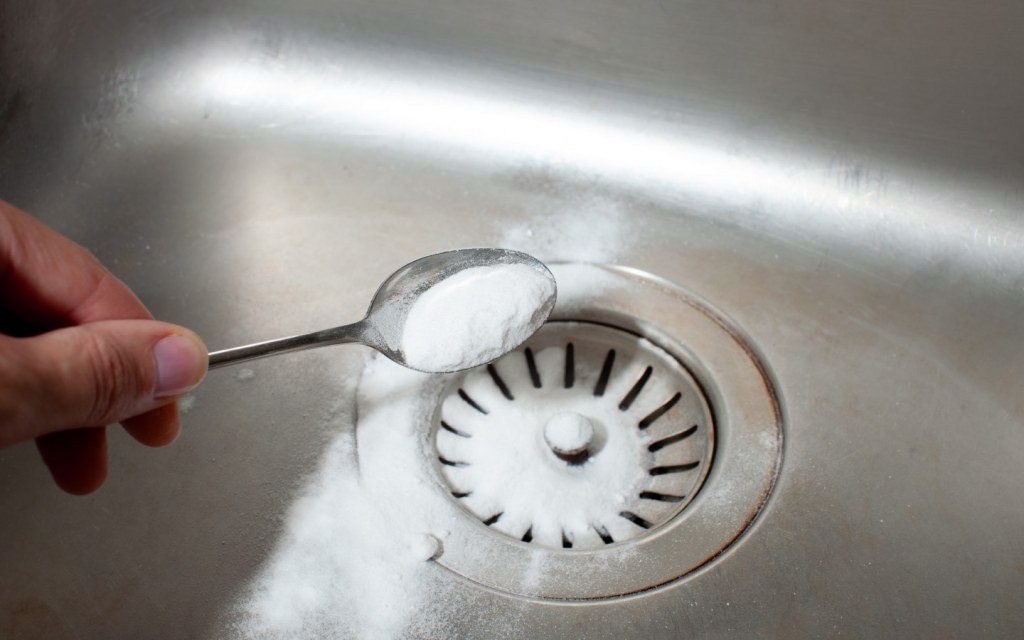
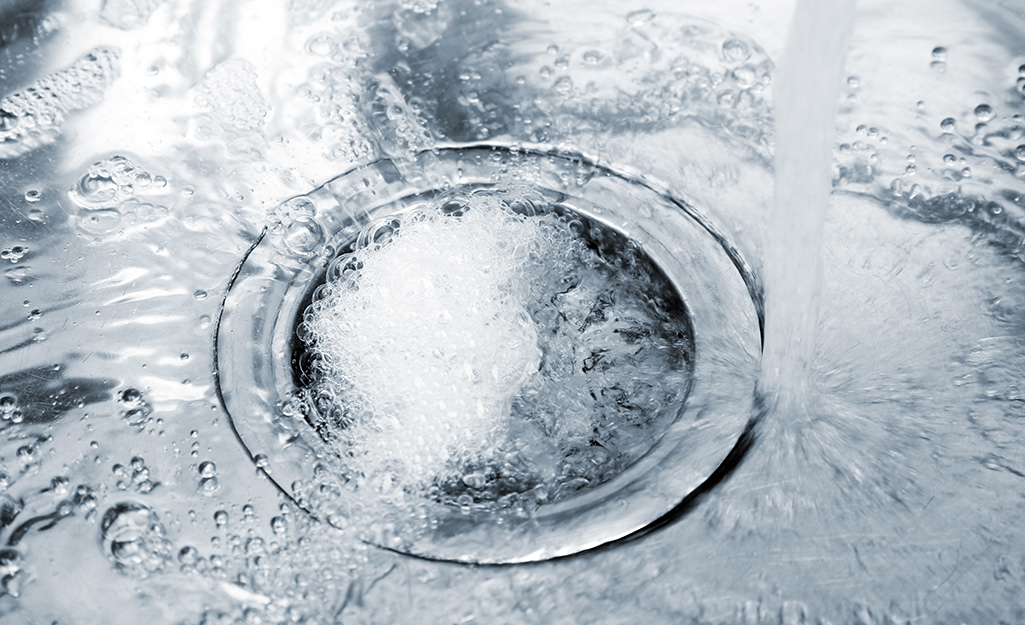

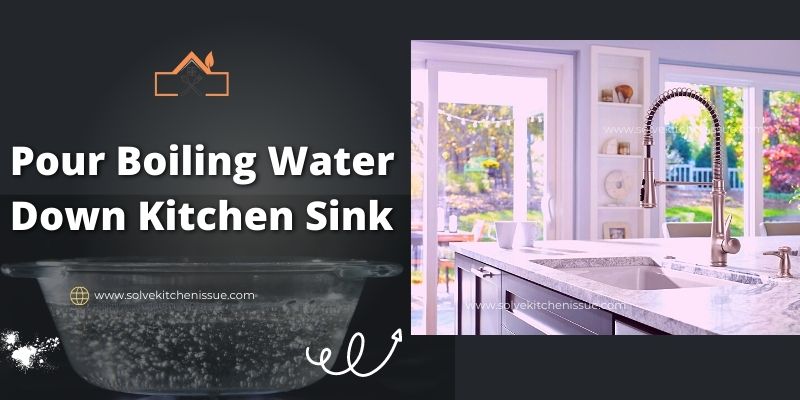
:max_bytes(150000):strip_icc()/freshen-and-unclog-drain-with-baking-soda-1900466-22-bbf940b70afa4d5abef0c54da23b1d3f.jpg)



:max_bytes(150000):strip_icc()/GettyImages-1459148353-279aed56a15749c2a7310a882dbe3571.jpg)
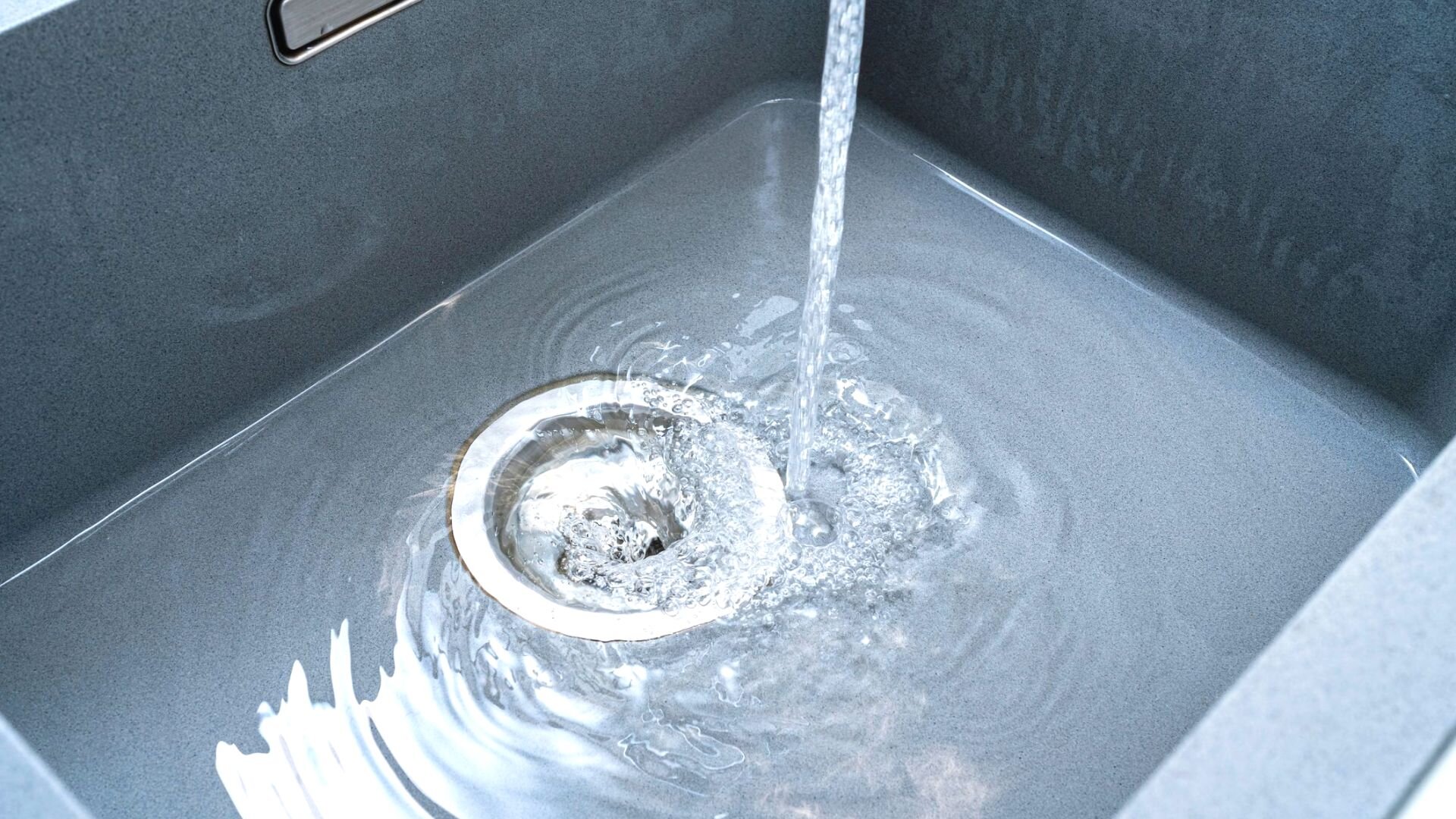

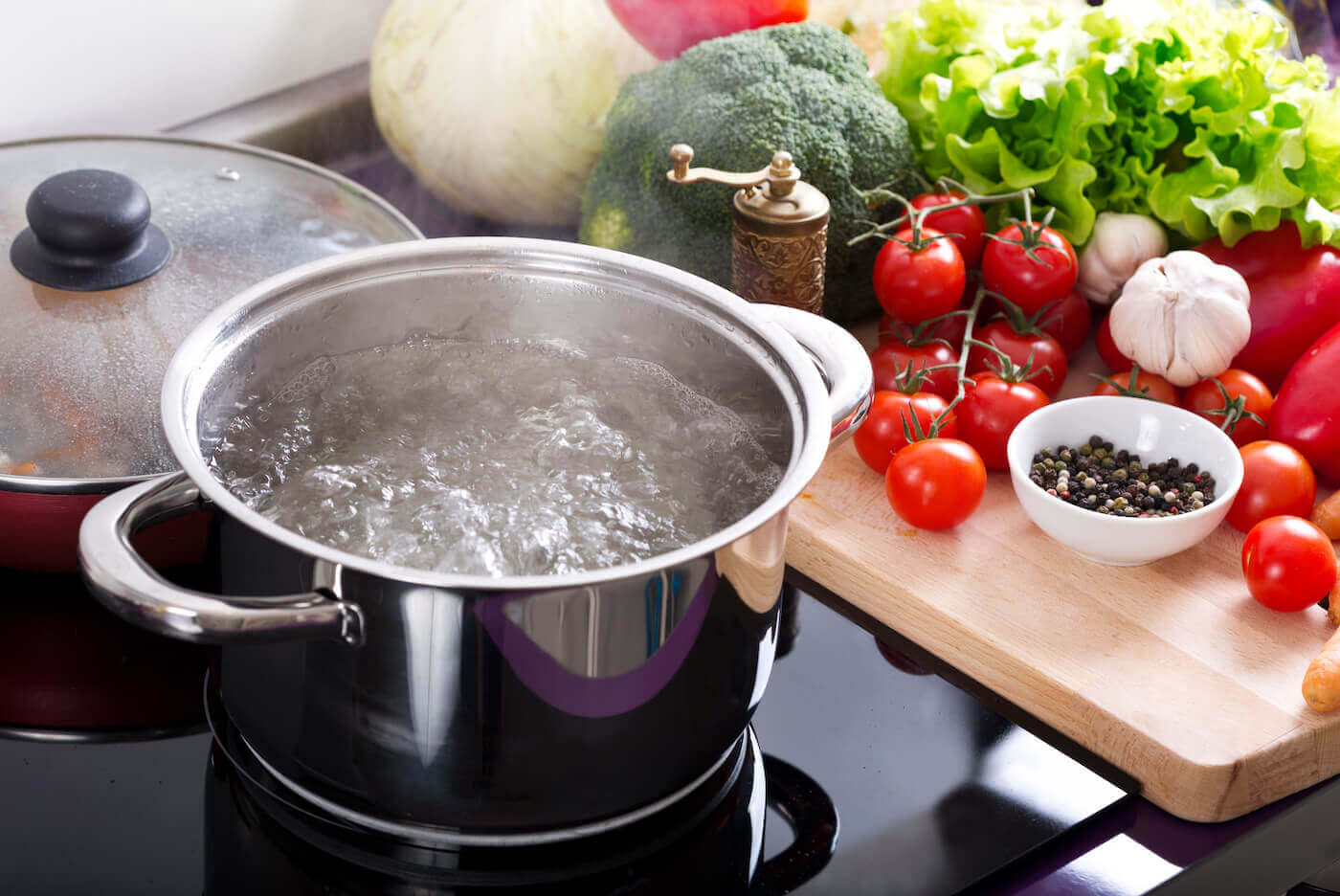
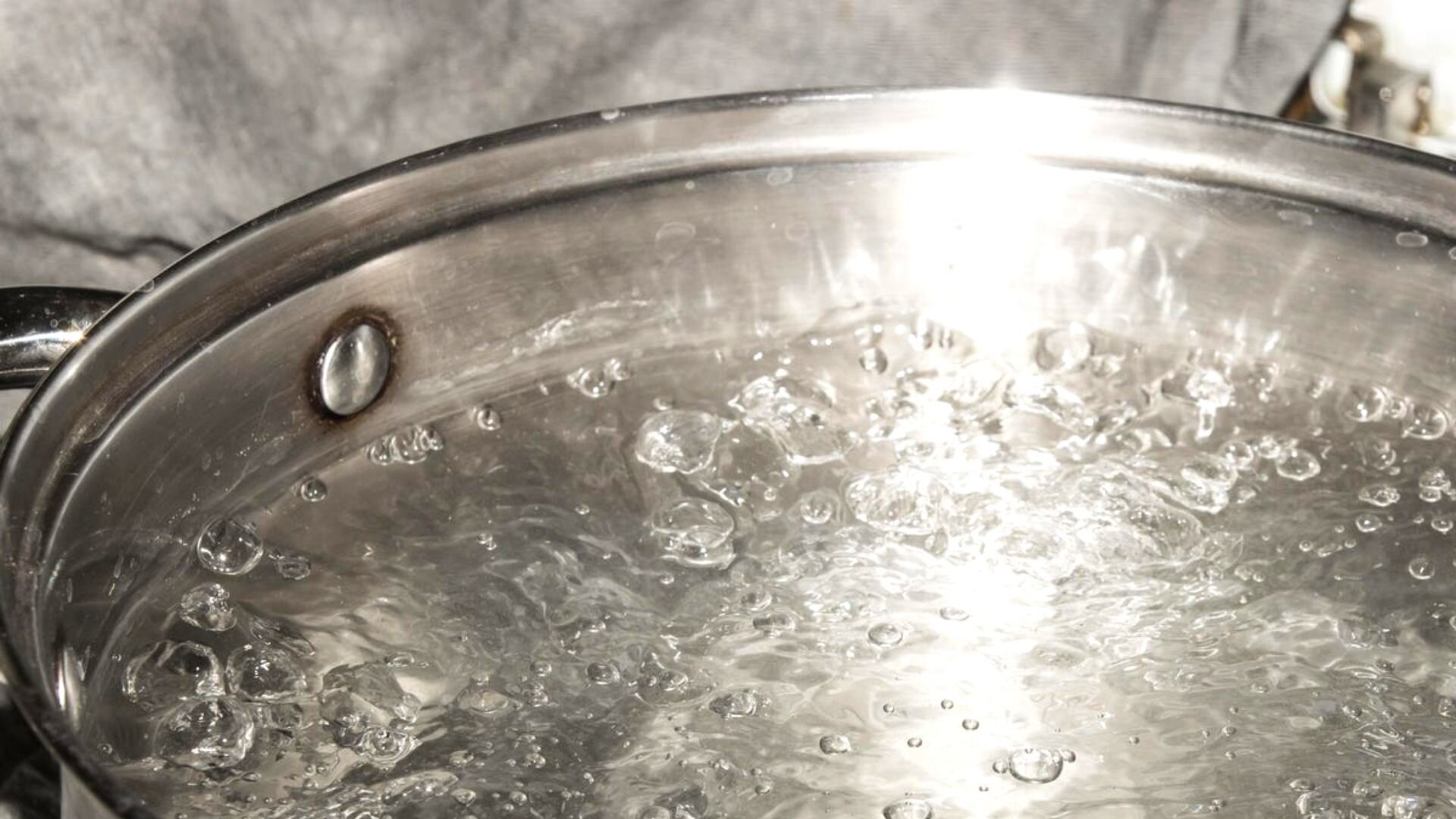

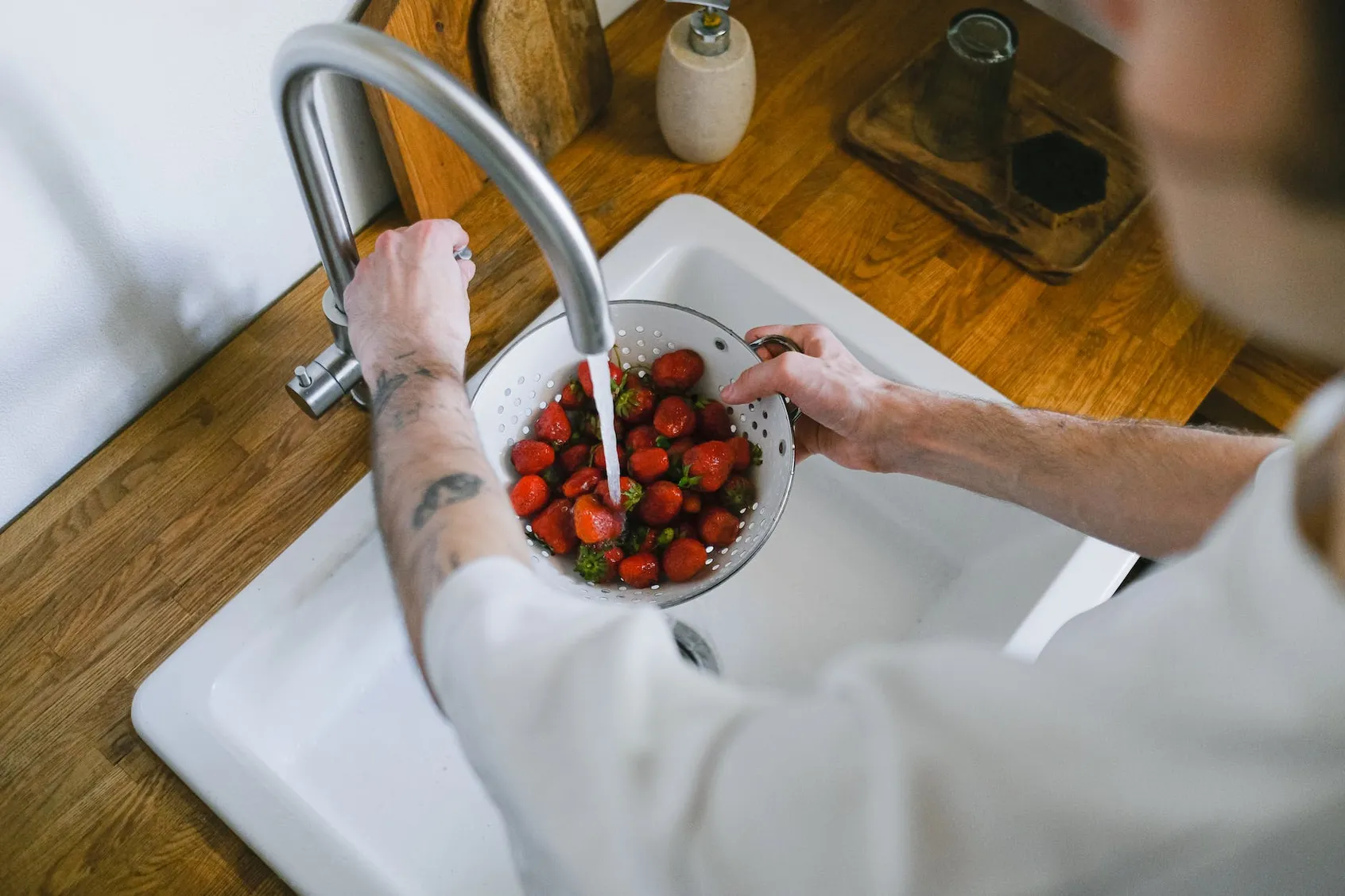


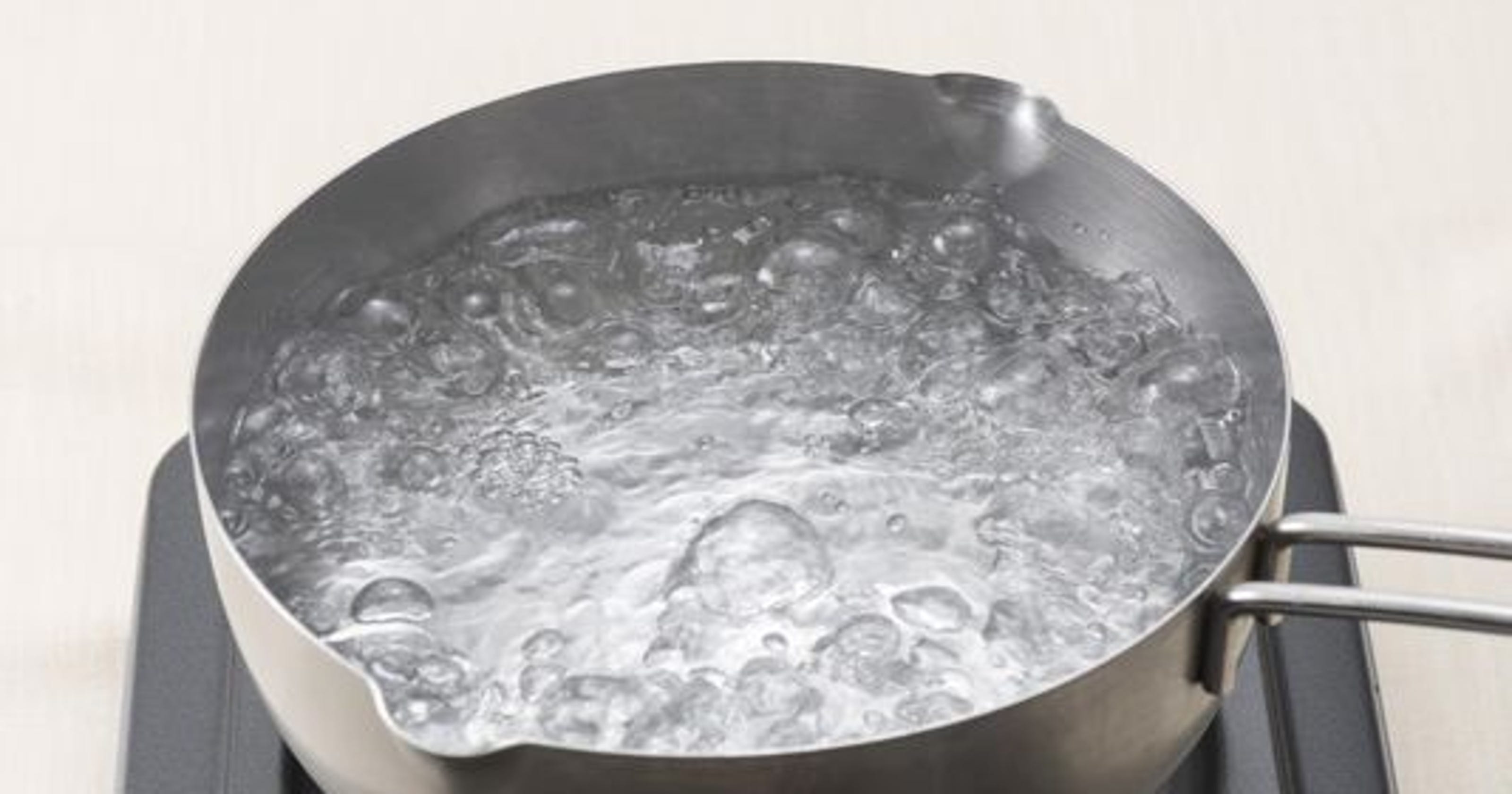
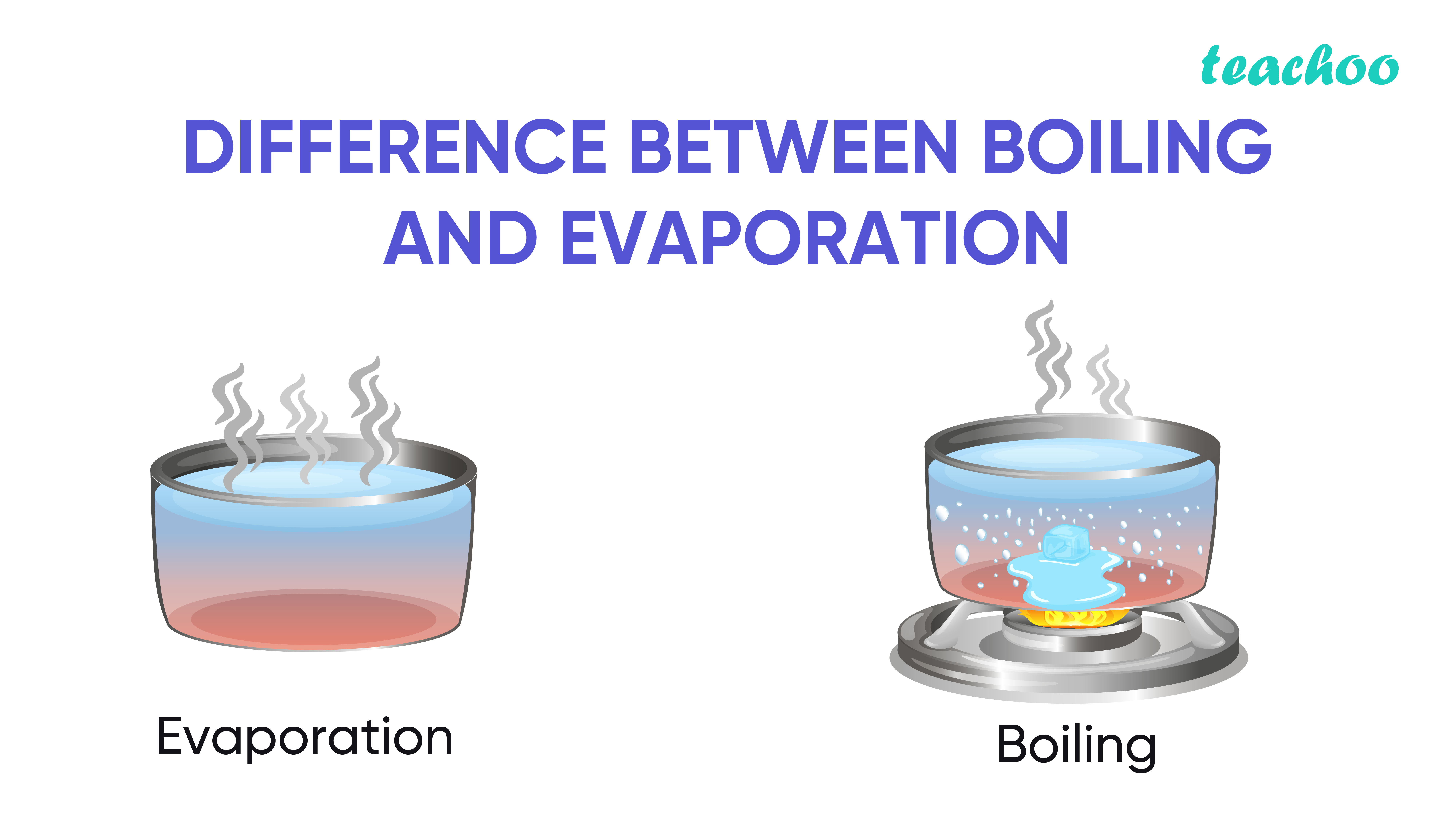





/https://specials-images.forbesimg.com/dam/imageserve/1068279060/0x0.jpg?fit=scale)




